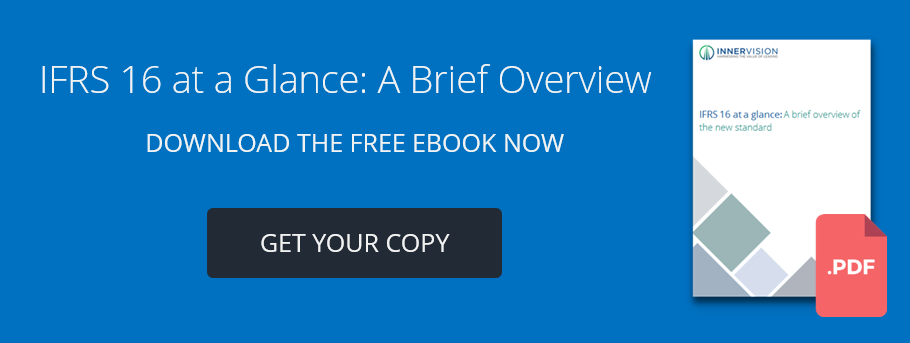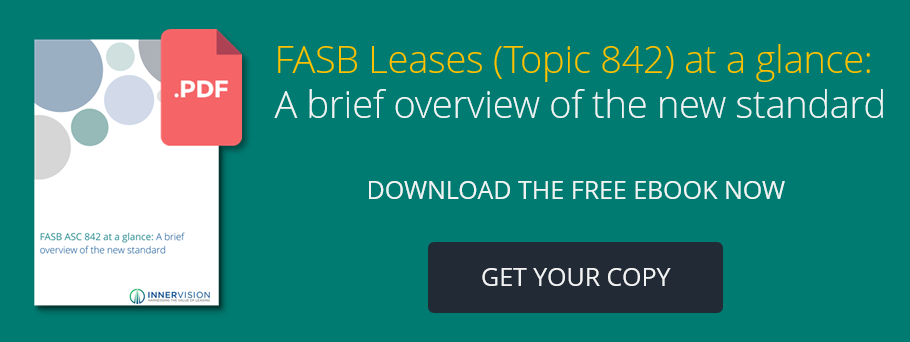Lease Accounting, IFRS 16 and the Need for Data
Updated 12th May 2021 | 5 min read Published 16th March 2016

Lease accounting changes are back in the news and this time we need to pay attention.Long before the formal discussions held way back in 2006, finance professionals have debated the need for a reform in the way leases are treated on company balance sheets and P&L statements.
A Global Call to Action
Under current lease accounting standards, operating leases (i.e. the ones that aren’t finance leases) do not need to be recognised on balance sheets. In other words, operating leases do not need to represent a right of use asset or a lease liability on a company’s financial statements; they are accounted for off balance sheet. Although they do feature within the footnotes, the estimates, compromises and calculations investors must make in order to compare lease commitments across balance sheets is made complex by a lack of transparency.
Simply put: current balance sheets do not give a clear or accurate reflection of a business’s financial obligations and standing.
Jump ahead nearly 10 years and we finally have a published accounting standard from the IASB: IFRS 16 Leases and FASB’s ASU 2016-02 (Topic 842). When it comes to lease accounting news, history dictates that after a week or two of excitement, we all go about our merry way and put preparations for the biggest change to lease accounting in at least 30 years on the back burner. The publication of IFRS 16 cannot be ignored.
Unfortunately, there will undoubtedly be a large handful of companies who neglect the warnings of numerous accounting officials and experts and fail to begin their preparations. The likes of Deloitte, PWC and Grant Thornton have all highlighted that businesses that haven’t begun their processes are already at risk of running behind.
Trouble Brewing
Arguably, the task most at risk of underestimation and neglect is in fact the most time consuming and costly.
In order to produce an accurate contingency strategy, analyse the scope and impact of the project as well as complete the required calculations and changes to financial reports, businesses need to have access to every active lease currently in use.
Simple right?
Companies that have a succinct system for lease management will find this process is not as time intensive, resource consuming and cost demanding as those without. Currently, there is a worryingly large number of well-known and industry leading brands managing their entire lease portfolios through limiting, messy spreadsheets and manual paper-based storage. Particularly for larger companies who have more leases that are likely to be spread across geographies, offices and departments, this method of data management will make the switch to lease accounting much more difficult.
Unfortunately, few companies have a 100% complete account of their portfolio; the majority are a jigsaw of reports from different departments or an incomplete list.
Managing Director of PricewaterhouseCoopers’ Capital Markets Accounting Advisory Services, Sheri Wyatt has further highlighted that many companies may not be as fully prepared as they need to be:
"I don’t want to give the impression that companies don’t know what their lease obligations are. But with the new standard and the prominence on the balance sheet, they need to ensure that the information they have is complete and accurate."
Sheri Wyatt, Managing Director of Capital Markets Accounting Advisory Services, PwC
Assets inherited through acquisition, lease terminations that have slipped through the cracks, contracts agreed and extended without a recorded audit, even something as simple as a different company name on the lease; there are numerous reasons as to why a lessee does not have a full list of leased assets.
The Data Mission
In order to produce the required reports and identify how their asset financing will be affected, businesses will need to begin the process of gathering their lease data for all active leases.
"Many companies have disparate systems for tracking, monitoring, and housing lease agreements."
Sheri Wyatt, PwC
The concern shared by many accounting experts is that finance leaders may attempt to manage this transition through their current, traditional and outdated methods; relying on manual and inefficient spreadsheet applications to run the required complex calculations.
PwC’s Sheri Wyatt has commented on the “data gaps and even data quality issues” within spreadsheet systems that will cause problems during the transition to the new lease accounting standards:
"What we’re finding companies start to think about is, ‘Do I have all the right data? And if I don’t, how should I go about getting that data so I can ensure compliance?’"
Sheri Wyatt, PwC
Technology and digital solutions will provide the best and most optimised approach to the actions required for a smooth and hassle free transition to compliance. Lease accounting software will provide companies with:
- A central hub for storing all located leases and information
- A filtration system for finding information on specific leases required for reports
- Data processing, reporting and visualisation features to translate and utilise the information
- Scalable and practical lease management functionality for long term optimisation
Accurate and complete data is vital for a successful transition to the new lease accounting standards. In order to make the most of the new lease accounting rules and to ensure full compliance to IFRS 16 within the implementation deadline, lessees need to critically review their current lease storage and management systems.
The biggest threat is that businesses with inefficient systems in place, which do not allow for comprehensive, consistent and competent lease accounting, will refuse update.
As the most impactful change to lease accounting this century, companies really need to get a hold of their lease data storage and management plans if they wish to maintain compliant.
More on lease accounting software and the benefits of a digital approach to lease accounting management can be found here.
If you are concerned about your lease management and are interested in optimising your companies leasing to achieve savings and full compliance, be sure to get in touch with Innervision’s leasing experts about our comprehensive solution to lease accounting, LOIS.

%20and%20the%20Need%20for%20Data-1.png)

